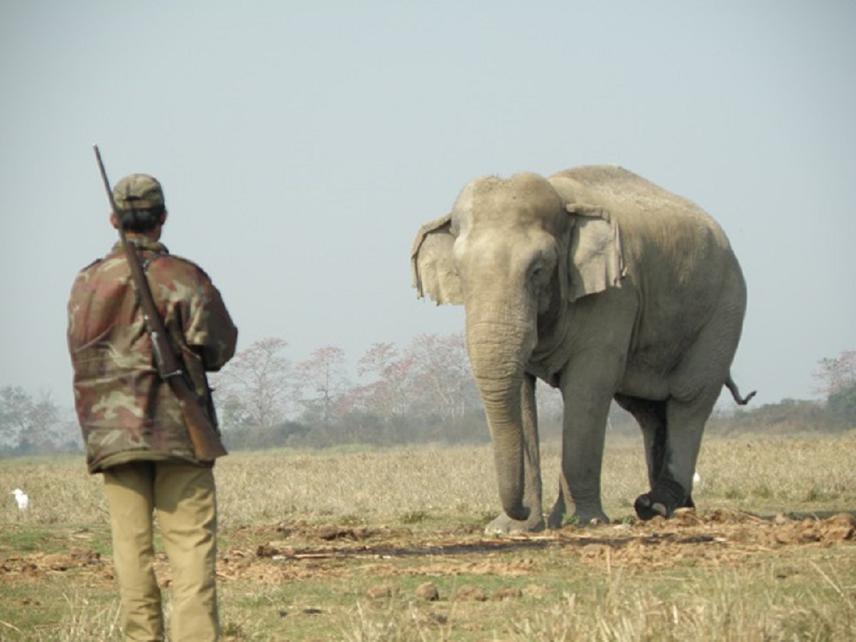Social media video featuring the project.
Elephants of Kaziranga
6 Jul 2009 Kaziranga National Park, India, Indian Sub-continent Hunting | Mammals
This project aims to study the reproductive behaviour of wild Asian elephants in Kaziranga National Park, Assam. We plan to undertake a behavioural study of elephant mating behaviour with special attention to female preference for tusked males.

Elephants have been poached for centuries for ivory and as a result African and Asian elephant populations have been decimated. The Asian elephant populations differ from African elephant populations in a curious manner with respect to tusks.
Male and female African elephants possess tusks whereas all female Asian elephants and some male Asian elephants do not possess tusks. Being tuskless could be a survival advantage and we think it may be instrumental in keeping some Asian elephant populations from the vortex of extinction. Splendid, ornamental tusks, however, may be indicators of good genes of the possessor and used by female elephants to discern mates of high quality.
Tuskers therefore may enjoy higher mating success than tuskless males. Empirical verification of this theory, however, is pending because the reproductive behaviour of Asian elephants, to our knowledge, has not been studied scientifically. If this theory is confirmed then the implication is that the selective removal of tusked males by poachers could be eroding the pool of good genes in the population.
Social media video featuring the project.
Elephants of Kaziranga